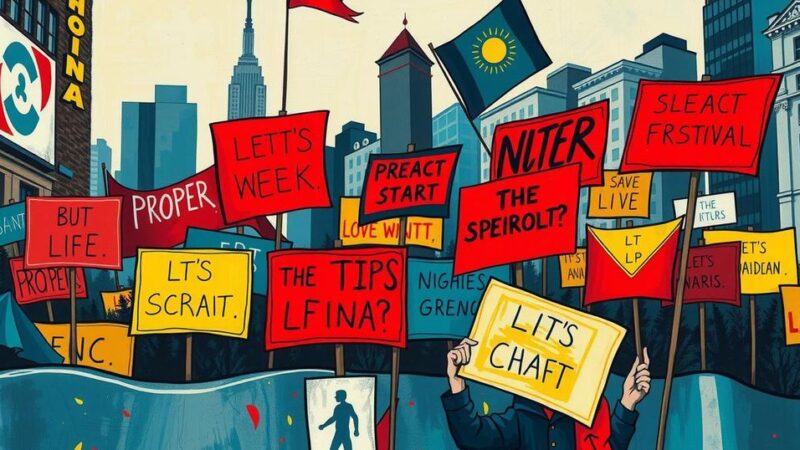Ecuador’s President Daniel Noboa has ordered a three-day closure of the country’s borders due to security threats from armed groups. Following an incident involving disguised armed suspects, Noboa has heightened military presence at borders and ports. He faces re-election against Luisa González amid significant violence and political instability.
Ecuador’s President Daniel Noboa has implemented a three-day closure of the nation’s borders, enforced from February 8 to 10, in anticipation of the first round of the presidential election set for February 11. This decision follows heightened security threats from armed groups, which have prompted President Noboa to enhance military presence in vulnerable border areas and to militarize Ecuadorian ports.
On February 3, an alarming incident occurred when Noboa’s security forces apprehended twelve individuals disguised as police and military personnel. Armed with rifles and a drone, these suspects were labeled by Noboa as “narcoterrorists” seeking to undermine national stability. This event underlines the serious security issues confronting Ecuador ahead of the election.
Since assuming office in November 2023 following a snap election, President Noboa has faced escalating violence, particularly after a notorious drug lord escaped from prison, prompting Noboa to declare a state of “internal armed conflict.” Noboa’s administration has since adopted a stringent approach to crime and security as part of its mandate.
President Noboa is running for re-election against leftist lawyer Luisa González, who was his rival in the previous election in October 2023. Noboa successfully won that contest with 52.1% of the votes, while other candidates, including indigenous leader Leonidas Iza, also vie for the presidency in this round amidst a backdrop of security concerns and political instability.
As the election approaches, Ecuador faces crucial challenges that will likely influence its political landscape for the foreseeable future. President Noboa’s measures to bolster security indicate the seriousness with which the administration is approaching the impending electoral process.
Ecuador is currently experiencing significant political and security challenges ahead of an important presidential election. The measures implemented by President Noboa, including border closures and heightened military presence, reflect the urgent need to address threats from organized crime and armed groups. Noboa’s administration, which has adopted a hardline approach to security, is navigating a politically charged environment characterized by instability and violence. Noboa’s rise to power in late 2023 was marked by a contentious political landscape, following the early departure of his predecessor amid corruption allegations. This context highlights the ongoing struggle within Ecuadorian politics and governance, making the upcoming election particularly consequential for the country’s future.
In conclusion, Ecuador’s presidential election is poised to be a pivotal event amid pressing security concerns. President Noboa’s border closure and increased military presence underscore the government’s attempts to mitigate threats posed by criminal elements. As he approaches the election against formidable challengers amid a backdrop of instability, the outcome will significantly shape Ecuador’s political and security landscape moving forward.
Original Source: al24news.com






